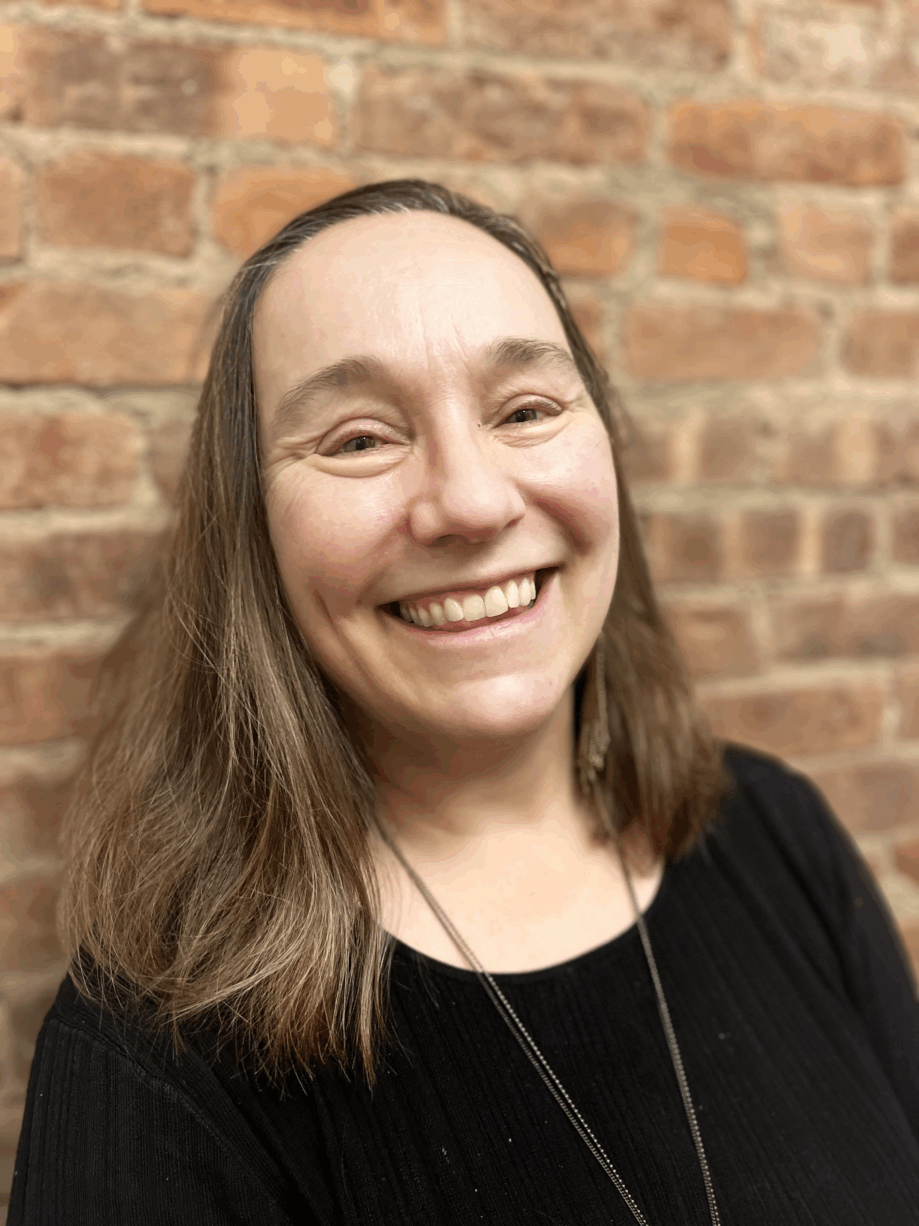
Catching up with 2025 Fiction Prize Winner Mary Jean Babic
September 30, 2025 | Awards, blog, Prizes


Mary Jean Babic grew up in Illinois and lives in Brooklyn, New York, with her family. Her writing has appeared in The Missouri Review, The Iowa Review, Crab Orchard Review, and other publications. She works as a content designer in the financial industry. She self-published Central Standard a collection of stories and essays, earlier this year.
SP: Throughout “Your-One-Year-Old, Your-Two-Year-Old,” there are themes of parenthood and preparedness for the future that present themselves in death, injury, or even getting a baby to sleep through the night. What prompted you to include these distinct examples in your story?
MJB: This story arose, as fiction often does, from a moment in real life. When my husband and I lived in Ann Arbor, we were driving with our daughter, then a baby, in the back seat when we saw a young woman staggering drunk down a sidewalk. I was aware that my reaction was much different than it would have been even a few months earlier. Before, I might have rolled my eyes or shaken my head and moved on. Now, as a parent, I was implicated. That could be my daughter one day.
We didn’t get out of the car, as Leif does. But that young woman, and my reaction, stayed with me. (For a long time. Our daughter is now 21.) When something stays with you like that, it’s often a promising kernel for a story.
I never think explicitly about themes. The important thing is to find the richest vein to mine for the characters and their story. The parenthood vein arrived only after many fruitless detours. It took me a stupidly long time to understand that what drove Leif to help Allison was his new status as a father, to which he had not yet fully adjusted and did not entirely understand. Everything flowed from that.
SP: While there are multiple causes for catastrophe, what drove you to choose alcohol and give it such a strong presence?
MJB: Because of the incident I drew from, alcohol was there from the beginning. However, a reader of an early draft questioned why Leif assumed it was booze. It was a good insight and helped emphasize something I was interested in exploring, which is that being a good Samaritan can be a dicey proposition. Leif really doesn’t know what he’s stepping into. Despite Maeve’s air of authority, she doesn’t either. So I wove in some ambiguity, with Leif realizing that he should call an ambulance. The fact that Allison dies suggests there could have been more than alcohol involved, but like Leif, we won’t ever know for sure.
SP: What do you hope to convey to parents/future parents who read your story?
MJB: That it never ends! But seriously, I write only with the intention of creating a full, engrossing fictional experience. Parents may of course take a particular interest, but hopefully the story will not appeal only to parents. We should always read outside of our own experience. The great gift of fiction is the opportunity to enter into lives that may be entirely different from our own and discover something that resonates.
SP: I thought Maeve was a fascinating character who, even in Leif’s point of view, seems to carry a sense of authority as a college student. How did this character come about? Was a character like her always meant to compliment Leif in this conflict?
MJB: Thank you! Maeve showed up when she rounded the corner and ran over to Allison. That may sound a little woo-woo, but it’s how it often happens. At some level I knew I would need other characters for Leif to be revealed by, especially since his wife had driven off and Allison was non-responsive. Once Maeve showed up, I had to figure out what to do with her, even if that meant getting rid of her–which, happily, didn’t prove necessary.
When they first encounter each other–on a cold sidewalk, in a stressful situation–Leif is feeling so helpless that the arrival of someone who seemed knowledgeable and confident comes as a relief. Maeve’s assertiveness makes Leif act against his better judgment and not call the ambulance, which helps drive the story forward. So Maeve earned her keep in the end, but she evolved very gradually, over many drafts.
SP: Can you describe your writing process?
MJB: I’ve never been that writer who sits down at her desk every morning and shuts out the world for three or four hours. I wish I could be. I go enormous stretches of time without writing at all. My habits are nothing to emulate.
I worked on this story, off and on, for about three years. Unfortunately for my productivity, I need to set stories aside for months at a time to gestate. When I come back to them, I can look at them pretty dispassionately, almost as if someone else had written them. It helps me get out of my own way and assess what the story is really doing, what’s working and what’s not.
One of my writing teachers, the great Alice McDermott, said: The solution to the story is in the story. Even if you end up changing or getting rid of something, there’s a reason you put it into the story to begin with, some string your subconscious was plucking. Writing is hard and slow and often sucks, but there’s nothing more magical than writing something that you didn’t know you knew. So if you get stuck, look first at what you already have. Maybe there’s a half-formed idea there that you were only half-aware of but that, on second look, you can do more with. It’s like digging into the back of your closet and finding a nice shirt you don’t remember buying.
I don’t want to make it sound like it’s all smoke and mysticism. Another of my great teachers, Kevin McIlvoy, often spoke about how writing starts in a state of almost blind intuition, guided only by feel through the primordial first drafts. Gradually, though, the story comes into focus. At that point, your job is to make conscious choices and shape the story with artistic intention. From goo to clarity; that’s the journey. It takes an awfully long time. But the hopeful news is that even with work habits as poor as mine you can, once in a while, create something worthwhile.
SP: The ending was powerful and bittersweet as we are left with a hopeful, yet unpredictable, future after an untimely death. However, the character who experienced this feeling the most seemed to be Leif. How did you decide for Leif to keep his decision a secret to Sarah?
MJB: There was always going to be a price for stopping to help Allison. And in keeping with the parenthood vein, that price had to be in terms of Leif’s new status as a father. Leif goes from collecting “can’t even” horror stories with Sarah to becoming complicit in one. It’s not abstract anymore. He believes that Sarah would not stay with him if she knew the truth, so he has to keep it secret.
Leif also doesn’t care to acknowledge, any more than he has to, that he made a deliberate choice not to go back. It may be a defensible choice–who knows if it would have changed anything with Allison?–but it certainly falls short of his lofty “community of parents” musings in the bar. Sarah would have gone back, and Leif knows it.
SP: What do you hope to achieve with your audience as they read your stories?
MJB: That they make it to the end. And that, having made it to the end, they feel that they’ve had a fulfilling reading experience that stays with them at least for a little while.
SP: I thoroughly enjoyed the tension you built with Allison, followed by the sense of safety surrounding the bar, then concluding with the heart-racing urgency you conveyed through Maeve’s texts. What advice do you have for future storytellers who strive to create this rollercoaster of emotions?
MJB: There are so many ways to think about what keeps readers engaged. Tension, conflict, friction, suspense, stakes–all these terms get thrown around, and they may or may not be helpful.
In early drafts, just focus on keeping the story moving, moment by moment. Why does Leif get out of the car to help the drunk girl? How can he help her, alone on that sidewalk, if she’s unresponsive and bigger than he is? Does he call an ambulance? Does the ambulance come? Maybe he’s interrupted; by what? By Allison’s friends, who have been looking for her. Etc., etc. At every turn you’re making small but crucial decisions, building the story moment by moment, which helps you continue to make decisions informed by what you’ve already built. (Until you revise and throw it all out. Like I said, writing sucks.)
In doing that, you’ll find the complications, the struggle, the tension, the surprises that give a story texture and life.
SP: If you could sit down and have coffee with any writer, who would it be? Why?
MJB: I would be far too intimidated to talk but this is fantasy so let’s go with it. Zadie Smith seems like she’d be great company and swap our coffee for gin and tonics. Karl Ove Knausgaard would be soft-spoken and brilliant and a little fearsome. Hillary Mantel, just to absorb even one small bit of her monumental intellect. Isabel Wilkerson, whose unsurpassed powers of research and storytelling reveal raw truths of America with deep compassion. James Joyce; what would he even be like as a coffee-drinking mortal? I have no idea, but I’d love to find out (or maybe not). Ask me again tomorrow and I’ll have five different answers.
Submissions for the swamp pink Fiction Prize open on January 1st and will close January 31st.
Submit your work here.
With a $20 entry fee, writers may submit up to 25 pages of fiction. Winners receive $2,000 and publication. All entries will be considered for publication, and more than one story may be entered.
Before you submit, please remove your name and any other identifying information from your manuscript. Simultaneous submissions are okay, as long as you contact us should the work be accepted elsewhere.
